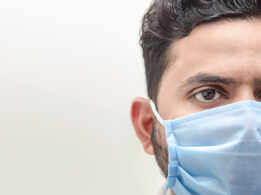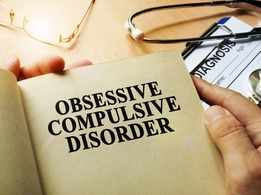01/5Can COVID vaccines reduce long COVID symptoms in patients?
)

Over a year has passed since the novel coronavirus took a massive toll on all our lives. The second wave of COVID-19, besides causing a lot of damage to our physical and mental health, claimed many lives. However, as the country returns back to normalcy, with the new emerging variants and several states lifting their border restrictions, the threat of a possible third wave looms over our head.
Additionally, while the number of COVID cases decline, post COVID complications have become another major concern for health authorities. That said, with government authorities urging people to get themselves vaccinated, experts suggest vaccines can also improve persistent and lingering symptoms in long haulers.
02/5How effective are vaccines against COVID-19?
)

Currently, Bharat Biotech's Covaxin, Serum Institute of India marketed Covishield (also known globally as Oxford-Astrazeneca or Vaxzevria) and the Russia-made vaccine, Sputnik V are the three available vaccines in India. These COVID vaccines have received the approval nods from the government and carry a good efficacy rate that meet the WHO standards.
According to the Union health secretary Rajesh Bhushan, "Both the vaccines (Bharat Biotech's Covaxin and Serum Institute of India marketed Covishield) being administered in India, are effective against Delta. But to what extent and what is the proportion of antibody titers produced by these vaccines will be shared soon."
Similarly, experts have claimed that Sputnik V, which became a part of India's vaccination drive, is effective against all variants of COVID-19 known today.
03/5When can recovered patients take their COVID shot?
)

As is known, the body gains sufficient immunity against the SARs-COV-2 virus once it has been infected, many wonder as to how long COVID immunity lasts and when they can get their COVID vaccines.
The government had advised COVID-19 recovered patients to wait at least 3 months (or 90 days) after testing negative to take their COVID vaccines. But this was in May when the fourth phase of vaccination had begun and the second wave was on the rise.
Read more: Explained: Why recovered COVID patients need to defer vaccination by 3 months
Doctors and medical professionals recommend the same, given that people who have previously fought the virus, have some level of antibodies and are well-protected against the infection.
04/5Can COVID vaccines ease persistent symptoms?
)

Considering patients who have recovered from the virus continue to experience post COVID symptoms and complications such as cough, loss of sense of smell and taste, fatigue and more, experts believe that vaccines may ease or reduce these lingering symptoms.
Earlier, a preprint study out of the United Kingdom, which has not yet been peer reviewed, offered additional evidence that vaccination may help people with long COVID.
Of the 66 hospitalized COVID-19 patients who had persistent symptoms up to 8 months, including 44 who got vaccinated and 22 who didn’t, those who got their COVID-19 shot had a “small overall improvement” in long-COVID symptoms as compared to those who weren't vaccinated.
05/5Most common long COVID symptoms
)

Long COVID is the state of experiencing COVID complications for a long period of time. During this period, one can go from experiencing similar and most common symptoms of the novel coronavirus to facing no issues at all. That said, here are some of the most common symptoms you can experience even after having recovered from the illness.
- Cough
- Fatigue
- Shortness of breath
- Joint pain
- Chest pain
- Loss of taste and/or smell












































































![[New!] Level 4 - 30 minute tempo fat-burning!
[New!] Level 4 - 30 minute tempo fat-burning!](https://static.toiimg.com/thumb/79327298.cms?width=147&height=86)













closecomments
SIGN IN WITH
FacebookGoogleEmail